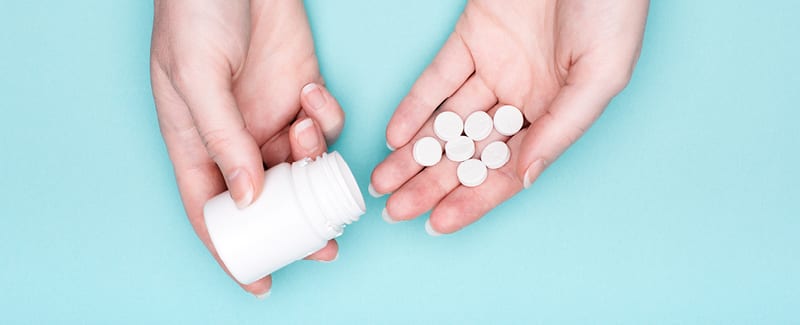
I first started taking antidepressants to deal with depression in my 20’s. After seeing a therapist and talking about my childhood and my parent’s divorce, and she recommended them to me. Being a child of the 90’s, it was no big deal. But when I told my aunt, a registered nurse, her reaction surprised me.
“Well, if you have to and you think it’ll help…but I won’t tell anyone,” she said. It honestly hadn’t occurred to me to be ashamed that I was taking Happy Pills, as I jokingly called them. Maybe it was a generational difference, or maybe I’d just been too focused on healing to think about it.
Ever since then, I’ve taken Happy Pills on and off for most of my adult life. I notice a difference when I go off them, and after trial and error have landed on a pill that has the fewest side effects. But I’ve also encountered the lingering stigma towards mental health issues if I talk about it openly.
Fill out a personality questionnaire for a job application, and it’s pretty clear that they want you to mark that you’re positive and upbeat most of the time. Crying jags in the work bathroom aren’t allowed, even if you’re in the midst of a messy divorce. People will tell you to meditate, or change your diet, to better manage your depression, rather than “popping a pill.”
Can you imagine if you told someone you had a heart condition and their response was maybe you should go off your meds and exercise more to strengthen your heart?
Instagram posts urge you to think positive and manifest your dreams, and friends who’ve never suffered from depression tell you to exercise more. Can you imagine if you told someone you had a heart condition and their response was maybe you should go off your meds and exercise more to strengthen your heart? But our society often treats mental illness like it should be managed differently than physical illness, which leads to a reluctance to talk about mental illness.
During my divorce, and at several times throughout the years afterward, I’ve spoken with my doctor and upped my dosage. I’ve proactively known that my stress levels would rise and that I needed to take care of myself. After years of living with and managing this disease, I know how to recognize its symptoms.
I don’t think there is any shame in knowing yourself, knowing your mental health hurdles, and taking steps to address them. In fact, I’d argue that it’s more of an issue to refuse to get help and inflict your refusal on everyone around you.
I have a child, and he needs me to be stable and secure. During the divorce, I didn’t think it appropriate for him to see me crying or upset. Going to therapy, taking pills, and, yes, exercising, helped me be a better mother.
There is a difference between situational sadness, such as when you lose a loved one or are mourning a marriage’s end and depression. Which is why it’s not a good idea to self-diagnose and just ask for a prescription. A trained therapist can help you identify the difference, and give you coping mechanisms to handle situational sadness.
Am I ashamed I pop a daily dose of citalopram? No. And, if you need it, I hope you’ll join me in the land of better living through pharmaceuticals.
©2011-2024 Worthy, Inc. All rights reserved.
Worthy, Inc. operates from 25 West 45th St., 2nd Floor, New York, NY 10036